Tokyo Tech's Glocal Summer School gathered for another intensive online session of lectures and groupwork three hours a day from September 13 to 15. The program, launched in 2019 and held twice a year in spring and summer, brought together master's, professional master's, and doctoral students from Tokyo Tech, students from other universities, and working professionals to discuss the topic of "Design for Humanity — Who can care for me?"
To maximize efficiency, participants were asked to prepare tasks in advance on scientific and technical applications of nursing care. Lectures began at 5 p.m. Japan time to allow international participants to join. Eight Tokyo Tech doctoral students, each of whom earned one liberal arts credit for their efforts, and two master's students, joined the event.
Day 1 — September 13
To kick things off, Tokyo Tech Associate Professor Hironao Kaneko, the coordinator of the program, gave a short lecture about the concept of the Tokyo Tech Glocal Summer School. Participants then acquainted themselves with one other through some lighthearted activities. Group members shared self-introduction sheets, displayed the papercraft marine animals they had created, and talked about their professions and fields of study. They then moved to Zoom breakout rooms to discuss in more detail the materials that had been prepared beforehand regarding nursing care. A representative summarized the group discussions to other participants, after which all members regrouped to continue open discussions about nursing care.
In the second part of Day 1, participants were treated to a special lecture by Yotaro Hamada, a senior staff writer at the Asahi Shimbun newspaper. Hamada explained the current situation of nursing care and spoke about the latest technology being introduced in the field. He also shared portions of an interview he had conducted with Bill Gates about global long-term care technology.
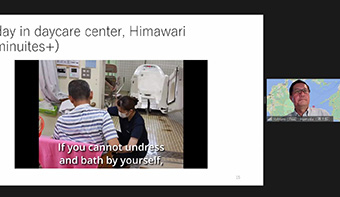
Hamada introducing care center in Japan
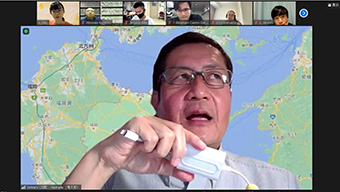
Hamada answering questions from students
Day 2 — September 14
On Day 2, participants witnessed two presentations by special lecturers. The first was by Professor Motohiro Sato of the Graduate School of Economics at Hitotsubashi University, who spoke about the need to counter rapid budget increases in long-term care and medical care caused by an aging society, demonstrating his points with various types of data.
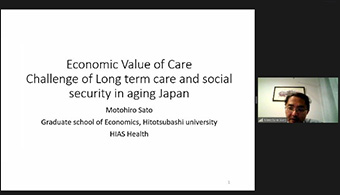
Sato's lecture on long-term care and social security in Japan
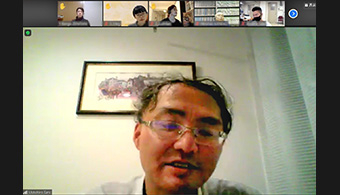
Sato during Q&A session
In the second lecture, Professor Hiroshi Okazaki of Fukushima Medical University explained the mechanism associated with elderly people hurting themselves when falling down, and as a result, becoming bedridden. He showed pictures of actual fracture treatment and talked about measures that can help prevent such injuries in the elderly.
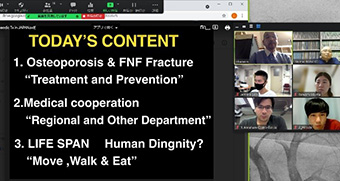
Okazaki's lecture on occurrence, treatment, and prevention of bone fractures
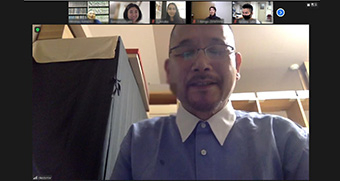
Okazaki conversing with participants
After the lectures, the groups convened again virtually to decide on the theme of their final presentation, and utilized a number of communication tools during their group work for the remainder of the day. Some students participated from overseas, overcoming the challenges posed by the time difference with Japan.
Day 3 — September 15
On the afternoon of Day 3, students gathered to brush up their final presentations, which included posters and 3D models. At the culmination of the event, Tokyo Tech Vice President for Teaching and Learning Jun-ichi Imura participated in the judges' panel to listen to the final presentations. Each group had ten minutes to share their ideas and respond during the online Q&A session, after which the judges selected the winner of the Glocal Prize. This summer's winner was a group that proposed the idea of a care-centered city which eliminates the isolation of the elderly and makes work easier for long-term care workers. Imura noted that the group’s large-scale idea — something that may not be realized immediately — was noteworthy.
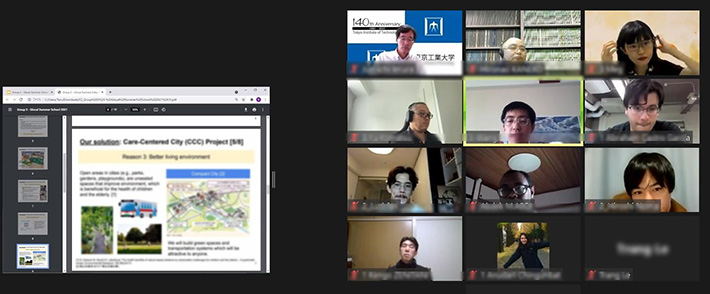
Poster presentation on care-centered cities (CCC)
Tokyo Tech doctoral students Weicen Wang and Yu Komatsu, and master's program student Megumi Niki also received Glocal Prize Plates for their active participation in the program.
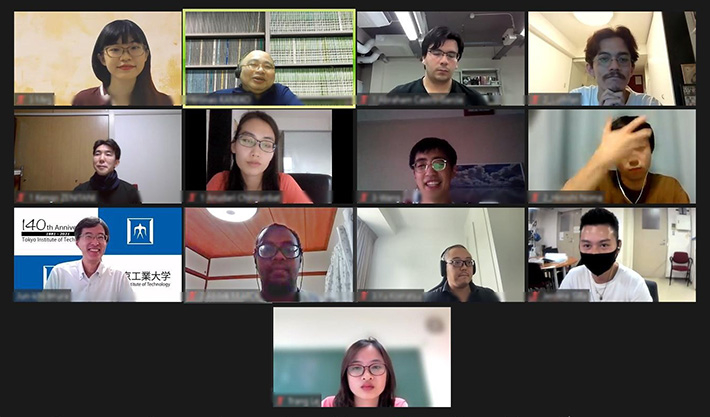
Participants waiting for announcement of Glocal Prize winner
In his closing comments, Vice President Imura expressed hope that students would actively apply what they had learned through group work and collaboration in the program in other international programs and joint research.
In addition to the program participants, Glocal Summer School 2021 provided valuable leadership experience to two Tokyo Tech doctoral students — Jerome Silla and Tomomi Miyata — who again volunteered as coach assistants.
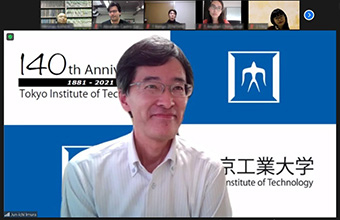
Comments from VP Imura
. Any information published on this site will be valid in relation to Science Tokyo.











